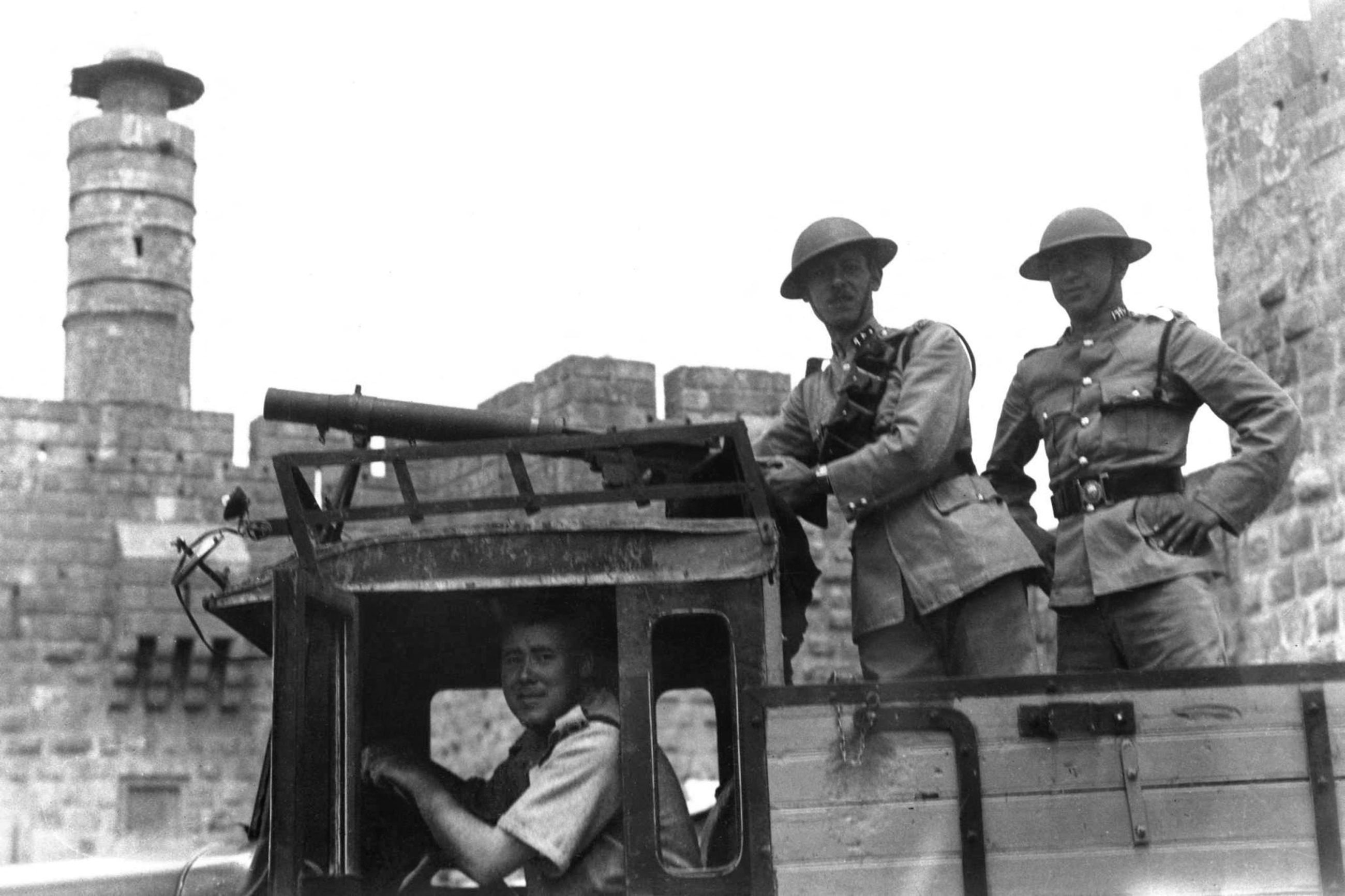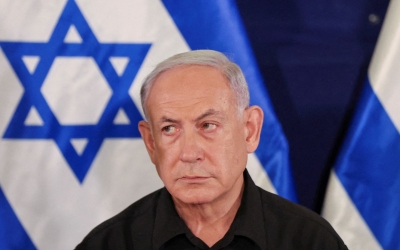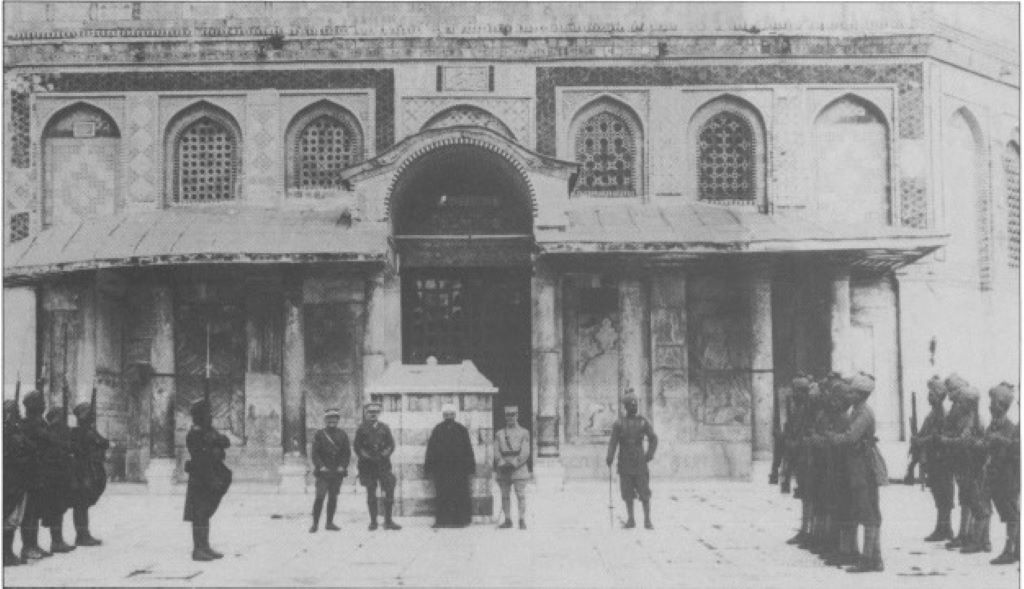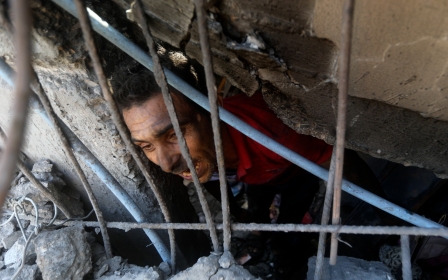Israel-Palestine war: What does Armistice Day have to do with Palestine?

Demonstrations against Israel's ongoing bombardment of Gaza have been ongoing in the UK for almost a month, generally taking place every Saturday in cities across the country.
While all of them have provoked criticism in some quarters - largely over accusations of hate speech or intimidating the country's Jewish community - the one planned for 11 November has received the harshest response from the government and its allies, coinciding as it does with the Armistice Day commemorations of the end of World War 1.
In a statement, Prime Minister Rishi Sunak condemned it as "provocative and disrespectful" while Cabinet minister Claire Coutinho suggested it would be "out of touch with UK culture" and that the government would support what would be an unprecedented ban on protesting if the police approve one.
The Metropolitan Police have however decided to allow the rally to go ahead, while organisers from the Palestine Solidarity Campaign (PSC) have stressed that the demonstration would in no way come into conflict with the Armistice Day events in Westminster and would be taking a different route.
The official Remembrance event in Whitehall takes place on Sunday, the day after the march.
New MEE newsletter: Jerusalem Dispatch
Sign up to get the latest insights and analysis on Israel-Palestine, alongside Turkey Unpacked and other MEE newsletters
"Some time ago, we indicated that on the 11th [of November], we would not be going anywhere near [the commemorations]...we knew that would be inappropriate," PSC director Ben Jamal told the Guardian.
But is it accurate to claim that the situation in Gaza and Armistice Day have nothing in common, considering how central the First World War is to the current situation in Israel-Palestine?
How was the UK involved in Palestine?
On 9 December 1917, the forces of the British Empire seized control of Jerusalem, ending 400 years of Ottoman rule over the city. On 30 October 1918, the Allies signed an armistice with the Ottoman Empire, just under two weeks before signing one with the Turks' German allies that put an end to the First World War.
Prior to the capture of the holy city, and the rest of the lands between the Jordan River and the Mediterranean sea, the British government had made a series of contradictory promises to various interested parties about their intentions for the captured territory.
With the Balfour Declaration in November 1917, the British government had announced that it would "view with favour the establishment in Palestine of a national home for the Jewish people" to Lord Rothschild, a prominent leader in the UK's Jewish community.
However, they had also earlier made promises to the Sharif of Mecca, Hussein bin Ali - the Arab ruler of the holy cities of Mecca and Medina, as well as surrounding regions - that they would recognise Arab independence in exchange for launching an uprising against the Ottoman Empire.
In 1920, the newly-formed League of Nations gave the British Empire the Mandate for Palestine, granting British administration to Palestine and Transjordan (now the modern Kingdom of Jordan).
The text establishing the mandate made reference to both the Balfour Declaration and that "nothing should be done which might prejudice the civil and religious rights of existing non-Jewish communities in Palestine."
Follow Middle East Eye's live coverage for all the latest on the Israel-Palestine war
The empire would continue to govern the territories until 1948, through numerous uprisings by both Arab Palestinians and Jewish settlers. That year the mandate was terminated and the State of Israel was declared on 14 May by Zionist leader David Ben-Gurion.
A conflict followed that saw more than 700,000 Palestinians driven from their homes and Zionist forces taking control of 78 percent of historic Palestine, while the West Bank and Gaza were captured by Jordan and Egypt respectively.
Although the rest is history, the British capture of Palestine was arguably the most significant event in the area's history for many hundreds of years and set the path for everything that followed.
How did the occupation affect Zionist hopes?
The British capture of Palestine during the First World War gave hope for the first time to the Zionist movement that their dreams for a Jewish homeland in the Middle East could be fulfilled.
As a political movement for a Jewish homeland away from European antisemitic persecution, Zionism had existed in various forms since the mid-19th century. There had long been discussions among its proponents over what form such a homeland should take, how non-Jews would be treated within it, and where it should be located, with Uganda even being proposed at the Sixth Zionist Congress in 1903.
'Before 1918, few Palestinians or Zionists ever imagined in their wildest dreams that they would see an independent state in their lifetime'
- James Renton, academic
The popular idea of basing it in historical Palestine - where the Kingdom of Judea had sat in ancient times - was limited by the fact that the Ottomans controlled the territory and were wary of allowing Zionist settlers to purchase land in Palestine.
Ottoman Sultan Abdulhamid II was known to have publicly declared: "We must forget the idea of allowing Jewish immigration into Palestine - otherwise, as they would in due course muster all the power in their hands wherever they settle [and] we would sign the death warrant of our religious brothers."
British control over the territory, combined with their previous promises in the Balfour Declaration and the sympathies of a number of government ministers with the Zionist movement, opened up new possibilities.
"Before 1918, few Palestinians or Zionists ever imagined in their wildest dreams that they would see an independent state in their lifetime," said James Renton, a professor of history at Edge Hill University, and author of The Zionist Masquerade: The Birth of the Anglo-Zionist Alliance, 1914-1918.
"Ever since, however, this mutually exclusive aspiration among both peoples has been a mainstream expectation."
How do Palestinians and Israelis view events now?
The coinciding of Armistice Day and the protests against Israel's war on Gaza is accidental, and claims by the government that there could be attacks on the Cenotaph commemorating Britain's war dead - despite no protests planned near it - have been criticised as "inflammatory" by opposition politicians.

But the First World War nevertheless holds enormous significance for Palestinians and Israelis, and as the dust settled on Armistice Day on 11 November 1918, both communities saw that their futures were going to be irreparably altered, for good and ill.
Britain's role has not been forgotten by either Israelis or Palestinians. Some Palestinian rights campaigners have even suggested the UK owes reparations to Palestine.
Regardless, though a coincidence, the timing of Saturday's demonstration is arguably serendipitous.
"The British empire played a pivotal role in this story," explained Renton.
"It is entirely apt, therefore, that the former imperial capital city should witness the remembrance of the victims of the war in Palestine, a child of the Great War, on this day."
Middle East Eye delivers independent and unrivalled coverage and analysis of the Middle East, North Africa and beyond. To learn more about republishing this content and the associated fees, please fill out this form. More about MEE can be found here.





